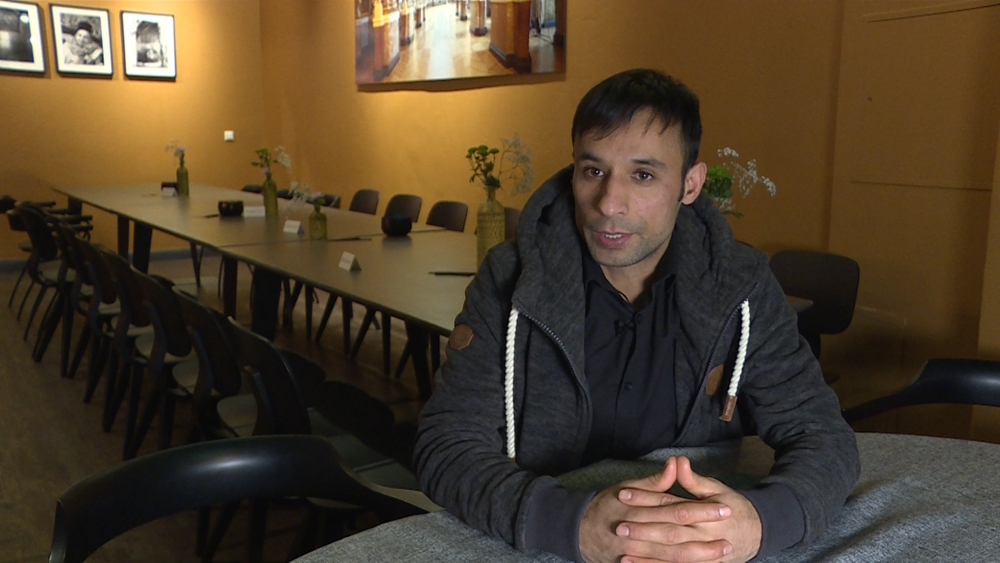
World
12:57, 19-Dec-2018
Germany's new immigration law may not help asylum seekers
Updated
12:33, 22-Dec-2018
By Ira Spitzer
01:32

Germany is facing a shortage of workers and its cabinet is expected to agree on a new immigration law this week to address the issue.
The new regulations will make it easier for skilled workers outside the European Union (EU) to come and work in Europe's largest economy. However, they don't provide much in the way of new employment or training opportunities for the more than a million asylum seekers who have arrived in Germany in the last few years.
Matiuallah H is one of them. Originally from Afghanistan, he's now training to work at the Berlin restaurant Kreuzberger Himmel. Like many other asylum seekers, the 27-year-old arrived in Germany in 2015. This internship is his first job opportunity in the country.

Matiuallah H speaks to CGTN at the restaurant where he is training. /CGTN Photo
Matiuallah H speaks to CGTN at the restaurant where he is training. /CGTN Photo
"I was really interested in this job and that's why I chose it," he said. "Now I'm working and happy with my choice to train in the hospitality industry."
His initial asylum application was rejected but he's allowed to stay while he appeals the decision. Matiuallah is not alone. Over half of asylum claims are unsuccessful, leaving hundreds of thousands of people in similar situations across Germany. Many live in fear of being suddenly told they need to leave the country.
Germany's Institute for Employment Research estimates that there are some 1.2 million unfilled positions in the country. The law is intended to make it easier for employers to bring in skilled workers from outside the European Union. A draft of the proposed new law does provide opportunities for failed asylum seekers to stay and work under certain conditions.
But many experts say the requirements to transition to legal immigration are so hard to meet that few people will be able to take advantage of them. That uncertainty makes it difficult for both employers and workers.
"The fact is that there are many asylum seekers in Germany," said immigration attorney Matthias Lehnert. "And whether they're granted asylum or not, many of them bring certain skills with them or would offer the possibility of contributing to the economy."

Asylum seeker Matiuallah H receives training to work at a restaurant in Berlin. /CGTN Photo
Asylum seeker Matiuallah H receives training to work at a restaurant in Berlin. /CGTN Photo
Refugees are a divisive political issue in Germany. In May, the Ministry of Finance said the country expected to spend more than 80 billion U.S. dollars on migration-related issues over the next four years, much of that on social benefits.
Matiullah says he's ready to continue training to become a skilled worker and start paying into the system. But while the new law may help bring more people to the country, it might not do much for those who are already here.
(Top image: Asylum seeker Matiuallah H prepares some bread at a restaurant in Berlin. /CGTN Photo)

SITEMAP
Copyright © 2018 CGTN. Beijing ICP prepared NO.16065310-3
Copyright © 2018 CGTN. Beijing ICP prepared NO.16065310-3